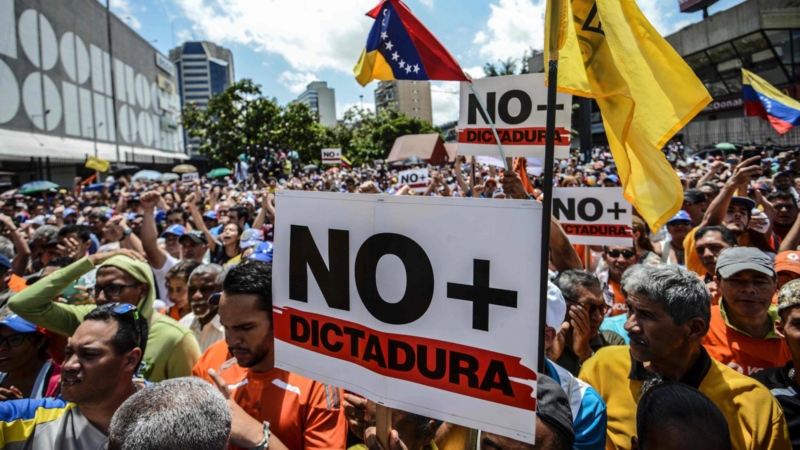No Easy Way Out for Venezuelans
 Alan / Flickr / CC BY-NC-ND 2.0
Alan / Flickr / CC BY-NC-ND 2.0
Chaos, it seems, has become a new norm in Venezuela. In the past month, masses of peaceful protesters opposed to President Nicolás Maduro have been violently dispersed by state security forces almost every day. Masked demonstrators burn barricades and face off regularly with armed quasi-paramilitary motorcycle gangs, known as colectivos, controlled by the government. So far, in the last month of unrest, nearly 30 people have been killed.
The current turmoil in Venezuela began when the Supreme Court, packed with Chavista loyalists of the Maduro regime, issued a ruling on March 29 that essentially dissolved the already-marginalized National Assembly and assumed the country’s legislative powers for itself. Although the court quickly reversed the ruling in the face of domestic protests and international outcry, the episode revealed the fragility of even a semblance of constitutional order in the country and sparked long-simmering tensions.
Meanwhile, the economy continues to grind to a relative halt, shrinking well over 10 percent last year. The actual rate of inflation is difficult to measure, due to countless distortions and price controls, but reliable estimates put it at more than 700 percent, making it the world’s highest. The state-owned oil industry – Venezuela has the largest proven reserves in the world – has been hobbled by mismanagement, corruption, and lack of investment. As a result, the economic and humanitarian crisis has grown severe. There are reports of mass shortages of food and medicine, and the security situation has deteriorated. According to most counts, there are more than 100 political prisoners in Venezuela.



















